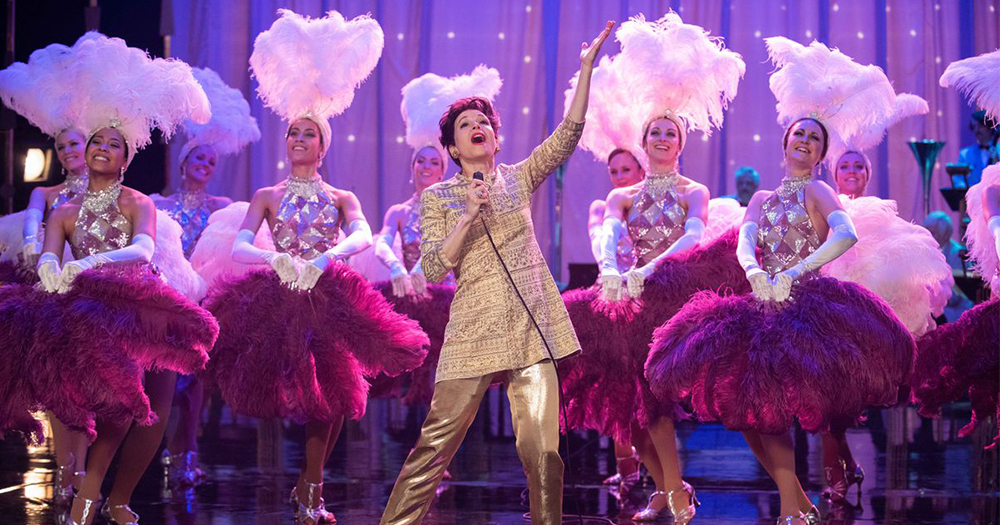Has there ever been a gay icon like Judy Garland? One thing we love more than a diva is a tragic diva, so Garland’s story seems tailor-made for a biopic bound to be loved by the queer community.
Not only are there theories her funeral was the spark that lit the fuse that ignited the Stonewall riots, but, during the days when homosexuality was still illegal, referring to someone as a ‘friend of Dorothy’ was code for saying they were gay.
While that’s a great pedigree for a biopic hoping to become a beloved gay classic, there’s another thing that’s equally important – it has to be good. So, is Judy good?
The simple answer is – yes. It’s very good. But let’s get into it.
Judy isn’t a standard biopic, while it does flash back to the young Garland on the set of The Wizard Of Oz, it mainly focuses on the five week period she spent in London performing Talk Of The Town – a series of sold out shows.
The film opens at a time in her life when Garland was essentially homeless, dragging her children from hotel to hotel, struggling to make ends meet with nightclub appearances. Garland accepts a lucrative offer to headline the Talk Of The Town gigs in London, hoping the money will get the family back on its feet, give them somewhere to live. Leaving her children with their father, she sets off, ready to take London by storm.
But that’s not how things work out.
Garland struggled for years with an alcohol and drug dependence that in later years made her not only undependable but unemployable. There are shocking flashback scenes of studio head Louis B Mayer forcing her into diets and pumping her full of pills to make her work longer hours and pills to make her sleep. So, while at first the shows are big hits, it’s not long before those addiction demons raise their heads, threatening to derail events.
So herein lies the slight problem with the film – while Garland’s troubles make for high drama and high stakes, the film is relentlessly sad. While only a heart of stone wouldn’t feel for her, the film could do with a bit of humour, or hope even, to lighten the mood a bit.
No matter what you think of the film itself, one thing that can’t be denied is the terrific performance that powers it. While it mightn’t have seemed an obvious choice, when you watch Judy you start to realise Zellweger was the only choice to portray Garland. Make no mistake, she’ll be nominated for an Oscar.
Coming out of the Hollywood wilderness, Renée shows the doubters that she is a fine actress. Wisely, she doesn’t try to copy Garland too much, meaning she comes across as a real person rather than an imitation. And she does her own singing, which is clever (while also being a little shady) as at that stage in her career, Garland’s voice was failing due to years of hard living.
It’s a testament to the performance that, despite obviously being a difficult character, you root for Judy all the way, willing her to do well, because there was no performer who could do what she could do.
So, both because of and despite the bleak moments, Judy, is not just good, it’s very good. And Zellweger is not just great, she’s fantastic, happily providing a gay icon with a fittingly iconic tribute.
© 2019 GCN (Gay Community News). All rights reserved.
Support GCN
GCN is a free, vital resource for Ireland’s LGBTQ+ community since 1988.
GCN is a trading name of National LGBT Federation CLG, a registered charity - Charity Number: 20034580.
GCN relies on the generous support of the community and allies to sustain the crucial work that we do. Producing GCN is costly, and, in an industry which has been hugely impacted by rising costs, we need your support to help sustain and grow this vital resource.
Supporting GCN for as little as €1.99 per month will help us continue our work as Ireland’s free, independent LGBTQ+ media.
